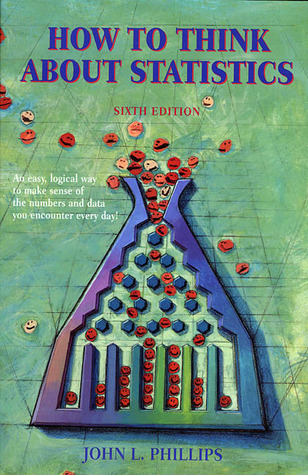The short version: I really enjoyed the book because it introduced me to new ways of thinking about everyday things.
The long version:
This books opens with the line "If I could have avoided statistics, I probably would have." If this is your mindset, then this is the book for you because it does a really good job getting into the thinking that goes behind statistics. It is big on concepts and sparse on mathematics and procedures.
The author then goes on to say, "My attitude changed after I began to study [statistics], for I discovered in it a new way of thinking that was truly fascinating." I found this to be true. As I tried to learn these concepts and think about them in relation to situations outside of technical work, I found them to be fascinating and useful. I came to think that nearly all of life involves the essence of statistical thinking: trying guess a far more complex reality from a subset of information. Statistics such as the mean and standard deviation, not statistical thinking, are just ways to make this type of thinking mathematically rigorous.
In fact, I think most people employ a less mathematically rigorous version of statistical thinking all the time--though they would never admit it. Case in point: your teenage son comes home from a party. You ask how it went. He says "fine" and heads into his room. You then have to decide whether to believe him or not. You have limited information from which to deduce the truth: a curt "fine." As you try to figure out if your son's statement is likely true or not, you may employ all kinds of statistical thinking: On average, how often will your son tell the truth about a party (the observed average truth-telling rate)? How reliable is that average (the variance of the truth telling rate)? If he tells the truth this time, will this be in keeping with past behavior (a significance test to see if this behavior is too weird to not dismiss)? All of the above is statistical thinking. It goes on everyday for everybody. Computational statistics just makes this kind of thinking more reliable by introducing rigor.

